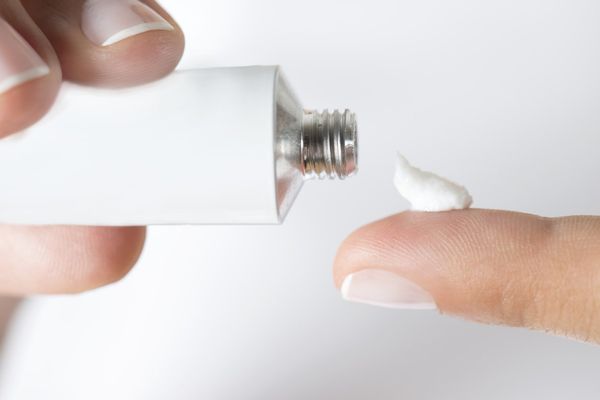As if the hot flashes, mood swings, night sweats and sexual challenges weren't enough, now you can add weight gain to the menopausal whammy.
That's right. In case you hadn't noticed (fat chance!), women tend to gain about 10 to 15 pounds on average—from 3 to 30 pounds is the typical range—during and after menopause. And because our entire metabolic mechanism is different now, that weight is blessedly hard to take off.
"I feel like my body has betrayed me," said one of my patients.
"Prior to menopause I was able to maintain a weight loss of 70 pounds. I see that 25 pounds have come back and nothing I seem to do is helping," said another woman.
Weight gain during menopause isn't totally related to "the change." Lifestyle, genetics, and, yes, hormonal fluctuation all play their respective roles, for better or for worse. But the weight goes on, and the way that happens is different from weight gain in previous years.
So, if you're accustomed to losing weight easily—or not gaining it in the first place—this development may come as a puzzling and unpleasant surprise. And if you struggle with your weight, be forewarned: The deck is about to be reshuffled, and that struggle may become harder yet.
The single bright spot is that you're in a very big boat with a lot of other menopausal gals—up to 90 percent of us gain weight during this transition, according to this article.
Menopausal weight gain is different because:
- It's slow and steady—one or two pounds per year. Not enough to really notice, but the cumulative effect sneaks up on you.
- It accumulates attractively around the abdomen. Belly fat. The kind that's linked to heart disease and diabetes.
- Breasts are bigger and the back is fattier. This might be nice for those of us who've always been lacking in that department, except that now, accompanied by a slowly enlarging belly, not to mention the back fat, the overall effect is less than flattering to our contemporary visions. And for those who were always well-endowed, well, a little (or a lot) more may simply be overkill.
- It's hard to lose. While "hard to lose" is a functional definition of weight gain, this is different because it's part and parcel of a more profound change in how your body processes energy.
- Body shape changes. Previously, you may have been a string bean or a curvaceous plum. Now you're a round apple.
Why does this happen?
To effectively tackle this unsettling turn of events and to grasp why the things you did before aren't working now, it helps to understand the underlying mechanism.
For one thing, muscle mass, which is an efficient burner of calories, slowly decreases with age. Now, even your resting metabolism (when you aren't active) is lower. Adding insult to injury, loss of estrogen compounds this effect. Studies of lab animals suggest that estrogen has a regulating effect on appetite and weight gain. Animals with lower estrogen levels ate more and moved less.
Learn more about how to Speed Up Your Metabolism at Midlife.
When the ovaries stop producing estrogen, fat cells tend to take over. Ovaries produce estradiol, a "premium" estrogen; fat cells produce estrone, which is a weak, inefficient estrogen. This hormonal change increases the body's efficiency at depositing fat, especially, we find, around the abdomen.
A recent study confirmed that certain proteins and enzymes that enable cells to store more fat and burn it less become more active in post-menopausal women.
"Taken together, these changes in bodily processes may be more than a little surprising—and upsetting—for women who previously had little trouble managing their weight," comments Sylvia Santosa, assistant professor in Concordia University's Department of Exercise Science in this article.
You got that right, sister.
Menopause packs a couple more weight-inducing changes: insomnia and stress. When you don't sleep well (and who does, what with night sweats and cratering mood swings?), levels of ghrelin, known as the "hunger hormone," rise and levels of the "fullness hormone" leptin drop. That's why you get the nighttime munchies.
A study of over 1,000 volunteers (The Wisconsin Sleep Cohort Study) found that those who slept less had higher ghrelin levels and lower leptin levels—and also had a higher body mass index (BMI), i.e., they weighed more.
And we all know what stress eating does to our waistline.
Learn more about Menopause and Anxiety.
So, what's a stressed-out, sleep-deprived, menopausal woman to do?
It's a challenge, without doubt. However, when we understand the mechanism—what's happening to our bodies on a biological level—then we realize that doing what we did before isn't going to work. We need to change the paradigm if we want to control our weight and maintain a healthy, active post-menopausal lifestyle.
This paradigm shift involves a different approach to both diet (Note: I did not say dieting!) and exercise. No magic pharma pill or painless regimen. Still, we can regain control of the bathroom scales despite the slings and arrows of our slowing metabolism and estrogen-storing fat cells. And honestly, we might end up with better health habits than we ever had before.
Learn more about 7 Ridiculously Simple and Realistic Ways to Lose Weight After 50.
Barb DePree, MD, has been a gynecologist for 30 years, specializing in menopause care for the past 10. Dr. DePree was named the Certified Menopause Practitioner of the Year in 2013 by the North American Menopause Society. The award particularly recognized the outreach, communication and education she does through MiddlesexMD, a website she founded and where this blog first appeared. She also is director of the Women's Midlife Services at Holland Hospital, Holland, Michigan.
- Thinking About Getting a Tummy Tuck? What to Know Before Going Under the Knife. - HealthyWomen ›
- And Just Like That … I Had a Flash Period - HealthyWomen ›
- 7 Ridiculously Simple and Realistic Ways to Lose Weight After 50 - HealthyWomen ›
- Estrogen and Weight Gain: What's the Connection? - HealthyWomen ›
- Menopause and Weight Gain: What's the Connection? - HealthyWomen ›
- The Truth About Working While Struggling with Perimenopause - HealthyWomen ›
- Women Deserve Care from Healthcare Providers Who Understand Menopause - HealthyWomen ›
- Menopause Related Weight Gain - HealthyWomen ›







